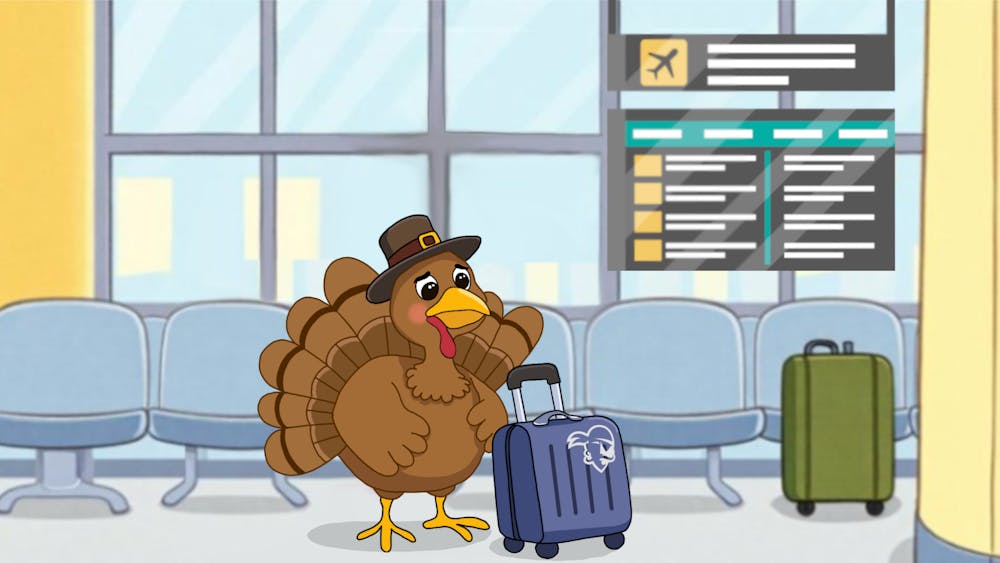It’s no secret that campus is dead most weekends—empty library, university center, and dining hall.
While this may not matter to a majority of Seton Hall students, the out-of-state kids can feel isolated.
When I moved here from California, the first two weeks were so exciting, and I met so many new people. There was something new to do every day of the week on campus that you could forget to miss home.
But then, when the second weekend rolled around, and all of my new friends went home for the weekend, I was confused about what to do on an empty campus.
“Are you going home this weekend?” became a regular part of my vocabulary that I had to routinely ask my friends.
Throughout my first semester, I had never felt so isolated in my life. I missed home and every break until the end of the semester was too short to fly home, but long enough for campus to empty out more than the average weekend.
The “heart” of SHU looks like commuters from an out-of-state kid. Everything the school does depends on the turnout rate, which means when commuters are here.
SHU knows its statistics: 74% of students are New Jersey residents, and rising, which means a majority of students don’t have to drive a long distance to get home.
Alternatively, out-of-state kids are scrambling to find the best day to fly out and back to campus, all while comparing plane ticket prices to the price of staying on campus. Some of these students who have nowhere to go may believe the $45 per night on top of the steep housing fee, which is over $5,000 per semester to live on campus, is greedy of SHU.
Last year, there was no housing fee, and it was open exclusively to out-of-state students who lived more than four hours away from campus. This year, campus and dorms are closed for longer periods, reopening at 2 p.m. on Sunday, compared to 10 a.m. last year, which was adaptable for those of us flying in and exhausted from travel.
My plane tickets back to California are close to $3,000 round-trip, and the closer to Thanksgiving you fly, the steeper the price.
All Residence Halls are now open during break compared to only a few being open for students last year, leading to a break housing fee. Considering that this break is only one day longer than fall break (technically, though, for some, the break is the same amount of time), the upcharge for housing seems absurd.
There are no events on the weekend because there are no people here on the weekend. And no people are here because there are no events.
Noticeably, this campus has more people staying over the weekend when there are parties, not school-sanctioned events, but parties. Seeing a semi-busy dinner in the cafeteria on Friday means there’s probably a party that weekend.
During my freshman year, it was devastating to ask that fateful question, “Are you going home this weekend?” to be met with a no only because a frat is throwing. I seriously started to question a lot of my early friendships and I would think: Am I not enough to convince people to stay on campus? Does no one want to spend time with me?
I became desperate for activities to distract myself from loneliness. I joined every club and even volunteered on weekends to feel less alone. But this didn’t solve my loneliness. Until I met other people who couldn’t go home either. Other people who are stuck on campus, just like me.
This didn’t happen till the last month of my freshman year.
Out-of-state students function as encyclopedias of the school. When you spend enough time with Elizabeth Ann Seton, you learn everything about her.
I know that the Jersey Mikes, By the Slice, and Dunkin’ all close early on Fridays. That Dunkin’ closes before 3 p.m. all weekend, and most Student Activities Board (SAB) events happen between Monday and Thursday. The library closes early on Saturdays. Lunch hours are from 11 a.m. to 2:15 p.m. and dinner from 4:45 p.m. to 8:15 p.m. every day.
I also know a thousand little things about downtown South Orange. Like Lisa Szulewski, who runs all the downtown events. And how the movie theater closed last February, and I’ve had to commute to New York City ever since to see a movie. How the grocery store closed and reopened with a new remodel.
I wish the school cared more about making the out-of-state students feel welcome. For example, SHU does commuter birthdays; I feel like, as someone who spent my birthday without my family for the first time ever, while going to school here, SHU could easily make an out-of-state birthday event so students away from family and friends don’t feel so alone.
Living thousands of miles from home is isolating, but I feel like I am learning more about myself and my capabilities than people who stay close to home.
I’ve grown closer to some of my best friends while living here and learned how to make the best of a new location, starting from ground zero.
Out-of-state students are allowed to grow and rediscover themselves far from home, a unique experience for an unspoken campus minority.
Kaitlyn Campeau is a writer for The Setonian’s Opinion Section. She can be reached at kaitlyn.campeau@student.shu.edu.





